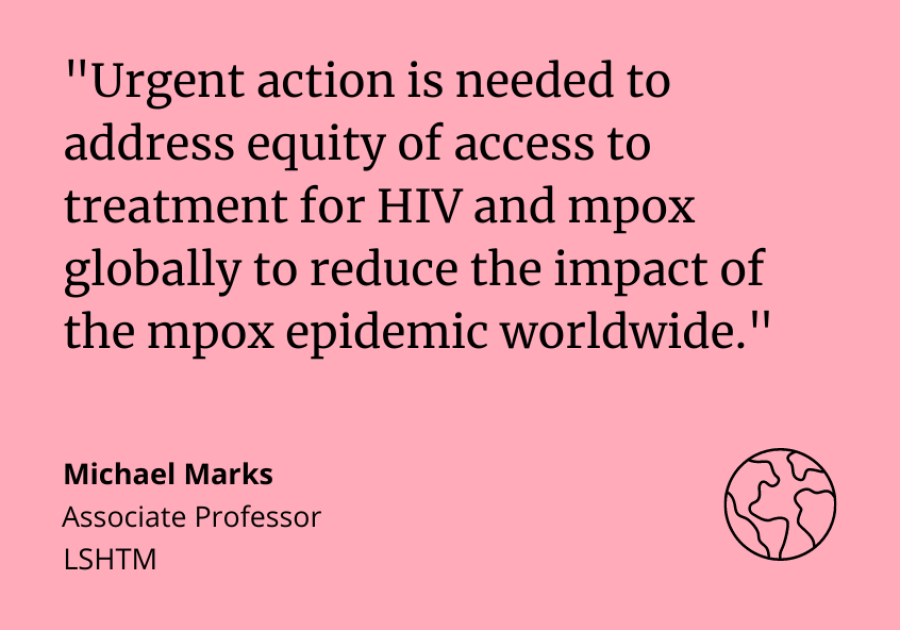Expert comment – Severe form of mpox identified in people with advanced HIV
22 February 2023 London School of Hygiene & Tropical Medicine London School of Hygiene & Tropical Medicine https://lshtm.ac.uk/themes/custom/lshtm/images/lshtm-logo-black.png
A severe, necrotising form of mpox infection, with a high mortality rate of up to 30%, has been identified in people living with advanced forms of HIV.
The findings, published in The Lancet, may have important policy implications, including the need to consider this form of mpox as an AIDS-defining condition in World Health Organization and Centers for Disease Control and Prevention classifications for HIV.
Since the 2022 outbreak of mpox began, people living with HIV have been one of the most affected populations. However, in most studies of mpox so far, the majority of people living with HIV have been receiving anti-retroviral therapy and had well-controlled HIV.
In the current study, researchers looked at the outcomes of mpox on 382 individuals (median age 35 years, 95% cisgender men) with advanced HIV, including 27 of the 60 reported to have died of mpox in the multicountry outbreaks in 2022.
Dr Michael Marks, Associate Professor at the London School of Hygiene & Tropical Medicine and co-author of the study, comments on the findings:
“Individuals with HIV have been one of the most affected by the global mpox epidemic. Our previous studies have shown that, for people on effective antiretroviral therapy, there are similar clinical outcomes for people living with HIV compared to those without HIV. However, we know that untreated HIV can result in many infections behaving in a much more severe manner.
“In this multi-country study we showed that individuals with advanced HIV experienced much higher rates of hospitalisation, complications and death from mpox than has been previously reported. In previous studies the mortality rate has been below 1% which contrasts starkly with our current findings. In patients with advanced HIV and mpox we noted more widespread and severe skin lesions and involvement of other organs including the lungs.
“Many individuals in our current study had limited or no access to either treatment for HIV nor to any of the treatments being trialled for mpox infection. Our data highlight that urgent action is needed to address equity of access to treatment for HIV and mpox globally to reduce the impact of the mpox epidemic worldwide.”
LSHTM's short courses provide opportunities to study specialised topics across a broad range of public and global health fields. From AMR to vaccines, travel medicine to clinical trials, and modelling to malaria, refresh your skills and join one of our short courses today.